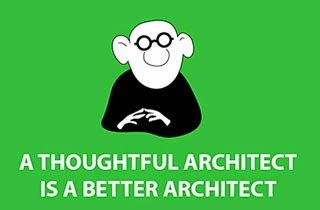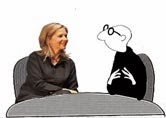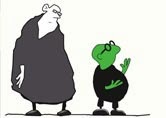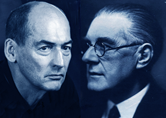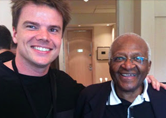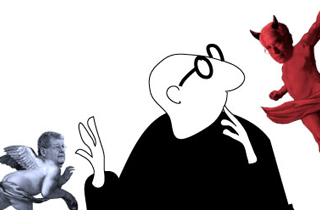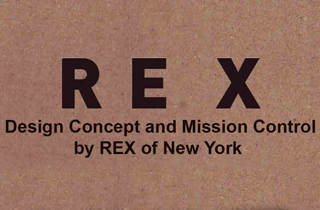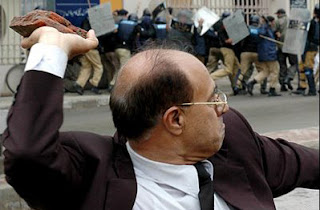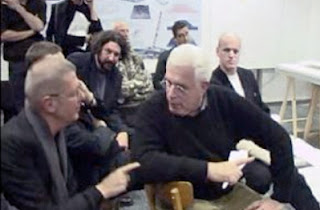In October last year (2012) I was contacted by Martha Thorne, Executive Director of the Pritzker Prize. Apparently she came across the blog and was reading my notes and criticisms of the prize. She was kind enough to leave a short note to let me know that she enjoyed my articles which she considered thoughtful. She also asked me if I would like to nominate any architect(s) for the 2013 Pritzker Prize. Below is my response to her:
I decided to release this note now because I think it is particularly relevant given the discussion that was set off when Denise Scott Brown asked to be retroactively recognized (after 20 years) by the Pritzker Prize since her partner Robert Venturi was awarded the prize alone for a career and body of work that they built together.
You may have also seen a growing petition to Martha supporting Denise Scott Brown’s request. (You can sign the petition here)
In this letter, you will aslo note that this is something that I had cautioned Martha about: That the Pritzker can either adopt and partake in shaping a new reality of inclusiveness or face backlash and/or irrelevance.
Hi Martha,
Thanks for visiting the blog and thanks for being a good sport and writing.
While I wouldn't go as far as nominating anyone I would say that if you are relying solely on nominations, then that's your first mistake. If the Pritzker has the means to give away $100,000 every year and a network spanning the most prestigious institutions around globe, not to mention the world wide reach of the Hyatt Hotels, then its a safe assumption that you also have the means to assemble a team dedicated to research and intelligence gathering on architects around the world that are doing work that genuinely contributes to humanity.
As I mentioned in one of my articles on the Pritzker, The Nobel Prize in Literature is pretty successful at combing the globe and picking out individuals that are making worthy contributions to the world through their writings.
What's really cool about the Nobel is how unpredictable they are. Take the Peace Prize for example (withstanding this year’s bizarre pick of the European Union): their recipients are wide ranging and could be anyone from the president of the United States one year, a Chinese political prisoner sitting in jail, the next year and three local freedom fighting women from Africa and Yemen the following year. The only criteria is that they are doing something to make a significant contribution to peace in the world.
Does giving the Nobel to these relatively unknown people struggling to make a difference, advance their cause in any way. You bet! That's what the Nobel prize does.
Since, you often refer to yourselves as Architecture's Nobel, I would suggest that as a start, you invite someone from the Nobel's Literature prize selection committee to come over and meet with you and exchange notes over coffee. Find out how they do it! I am sure they would be obliged. Seriously. If you are going to call yourselves Architecture's Nobel, then why not go all the way?
I sometimes talk about how every year around springtime starchitects of the first world get a little anxious and jittery in the belly because they are wondering if you are going to call. I implore you to imagine a world where absolutely any architect in any part of the world who have been genuinely doing work that makes a significant contribution to humanity feel jittery in their bellies around spring time too. Think about how many architects would seriously consider how their own work contributes to humanity? How many architects would make more ethical choices in their practices? How many more architects would strive to be more socially conscious than they normally do?
There are not that many institutions out there that can do this, but yours can. You have the ability to influence the world in this way. Consider that for a moment.
The sleek forms, and spectacular spaces that some of your recipients make and were selected for are nice. Really nice. I admire them, and some of your laureates are my greatest architectural heroes. I don't want to take away anything from them or what they contribute to architecture, but I think that great forms and spectacular spaces are not the only measure of an architect's qualities of talent, vision or commitment to the built environment or the profession.
The mission statement of the Pritzker also asks that the recipient should be making significant contributions to humanity. This is the aspect that you have consistently overlooked. It is really hard to see how any of the past laureates have made any consistent contributions to humanity.
Perhaps there is no one architect that fits both criteria at once (making significant contributions in each category) so perhaps it is worth alternating between architects that meet major parts each year.
Here is another thing to consider, the Pritzker is a very prestigious award, and it will probably remain so for a long time. However, it is quite obvious that a lot of the long held attitudes toward celebrity culture in architecture are changing . A single minded focus on the celebrity class is kind of lopsided. Most of the architects I know (and I know quite a lot) are not just interested in the sleekest building and the latest spectacle from about Zaha, Rem, etc. We are also interested in the multitudes of innovative ways in which many other architects around the world are contributing to the profession and humanity.
I am sure you are aware of the TED organization. They have a platform that gives attention to people from a wide variety of communities that are making innovative contributions to their communities a chance to be seen and heard. They have people ranging from the likes of former president Bill Clinton to William Kamkwamba (an African teenage boy who built his family an electricity-generating windmill from scrap parts). I believe this is the model of the future: It is indiscriminately merit based, and inclusive. The Pritzker was perhaps born in a time and place where prestige and exclusivity was seen as the highest virtue in the profession. That time has come and is slowly fading. The way I see it, you guys are at a crossroads: You can adopt and partake in shaping this new reality or you can cling to your name and prestige and hope that history swings back in your favor.
I understand that the committee is constrained/obligated to follow certain rules stipulated by the Pritzker mandate. However, even the greatest constitutions are meant to be broken, literally. The U.S. constitution, for example, was intended be dismantled and rewritten every 19 years. The authors realized that they would not be around to foresee all the changes that the world will undergo long after they died and I suppose they trusted that the keepers of society's laws would be thoughtful, morally cognizant and intelligent enough to make good decisions. Even though no one ever did do it, it is true. Just ask justice Breyer next time you see him.
I brought this up because, this is perhaps the obvious obstacles to some of the suggestions I am making. For example, I thought your choice of Wang Shu this year was a pretty decent one, however, I felt you should have included his partner Lu Wenyu as well. The argument presented by you (perhaps shaped by the forces in the Pritzker organization) was basically to point to the rules, precedents and procedures of the Pritzker mandate. However, I would bet that if you put all the bylaws and regulations aside, took a deep breath and asked yourself the question:
Do I feel in my heart that this is the right thing to do?
I think you would have agreed that Lu should have been included as well. While I understand that you are the executive director and not a voting member of the committee your influence on the jury is of significance. Think about it, would it be so bad to bend the rules a little bit (as you have done before in the cases of Herzog & De Meruon and SANAA) to do what you know in your gut is the right thing? The Nobel Prize does it all the time. The Nobel Peace prize mandate for example, stipulates that the prize should be given to a person (singular). However, they have given the prize multiple times to organizations such as the United Nations, The International Red Cross, and several other organizations over the course of its history.
In the end, they have chosen to award the prize in line with the intent and spirit of the mandate rather than the rules that bound it.
I think you should consider my suggestions in the same spirit.
If I were to have it my way, I would not have prizes and awards at all. However, if we must have them, then I would award them to design teams and not so much to individuals. It is very rare that a single architect can work alone to develop a masterpiece from start to finish. If architecture was compared to a sport it would be more like basketball, or football and less like tennis, or golf. Imagine giving the world cup to Andrés Iniesta, not Spain or the NBA championship trophy to Lebron James alone while his teammates and the whole Miami Heat organization watches on. It would be ridiculous. When an NBA team wins, the whole organization gets a ring; this means that aside from the starting players, the reserve players, the coaching staff and the administration for the organization receive a ring. The intent is to recognize everyone who contributed to the success of the team.
Speaking of intentions, I must apologize for this long tome of a letter, it was not my intention to outline a bold new vision for the Pritzker, but I felt this was important to at least try to persuade you. After all, it's not everyday one gets contacted by the executive director of the Pritzker Prize. :)
Respectfully Yours,
Conrad Newel
NOTES ON BECOMING A FAMOUS ARCHITECT
Liberating Minds Since August 2007

















